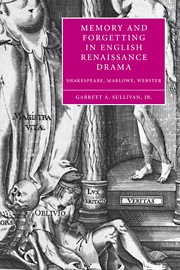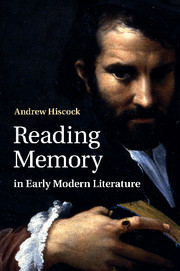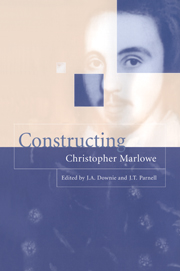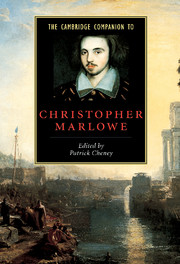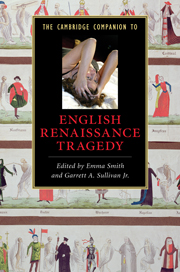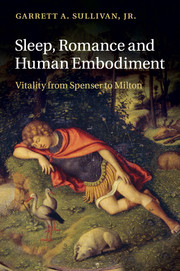Memory and Forgetting in English Renaissance Drama
Engaging debates over the nature of subjectivity in early modern England, this fascinating and original study examines sixteenth- and seventeenth-century conceptions of memory and forgetting, and their importance to the drama and culture of the time. Garrett A. Sullivan, Jr discusses memory and forgetting as categories in terms of which a variety of behaviours - from seeking salvation to pursuing vengeance to succumbing to desire - are conceptualized. Drawing upon a range of literary and non-literary discourses, represented by treatises on the passions, sermons, anti-theatrical tracts, epic poems and more, Shakespeare, Marlowe and Webster stage 'self-recollection' and, more commonly, 'self-forgetting', the latter providing a powerful model for dramatic subjectivity. Focusing on works such as Macbeth, Hamlet, Dr Faustus and The Duchess of Malfi, Sullivan reveals memory and forgetting to be dynamic cultural forces central to early modern understandings of embodiment, selfhood and social practice.
- Considers the conception of memory in the work of three major Renaissance playwrights; Shakespeare, Marlowe and Webster
- The only full-length monograph on this subject to focus particularly on forgetting
- Will appeal to a wide range of readers interested in early modern drama, Shakespeare, the history of the body, and the history and philosophy of the self
Reviews & endorsements
"Where such scholars as Frances Yates, Mary Carruthers, and William Engel have studied the Renaissance artes memorativae, Garrat A. Sullivan Jr. has now undertaken a valuable complementary task. Memory and Forgetting in English Renaissance Drama: Shakespeare, Marlowe, Webster, traces the operation of what we might call an ars oblivionis in early modern English theatrical texts..." - Bruce Boehrer, Studies in English Literature
"Sullivan is a splendid close reader, with an intelligent fastidiousness so admirably capable of sustaining an argument that the book is a lively read throughout and wholly recommended." --Andrew Scott, Buffalo State University: Renaissance Quarterly Review
Product details
January 2006Adobe eBook Reader
9780511131240
0 pages
0kg
1 b/w illus.
This ISBN is for an eBook version which is distributed on our behalf by a third party.
Table of Contents
- Acknowledgements
- Introduction: planting oblivion
- 1. Embodying oblivion
- 2. 'Be this sweet Helen's knell, and now forget her': forgetting and desire in All's Well That Ends Well
- 3. 'If he can remember': spiritual self-forgetting in Doctor Faustus
- 4. 'My oblivion is a very Antony'
- 5. Sleep, conscience and fame in The Duchess of Malfi
- Coda: 'wrought with things forgotten'
- Notes
- Index.

